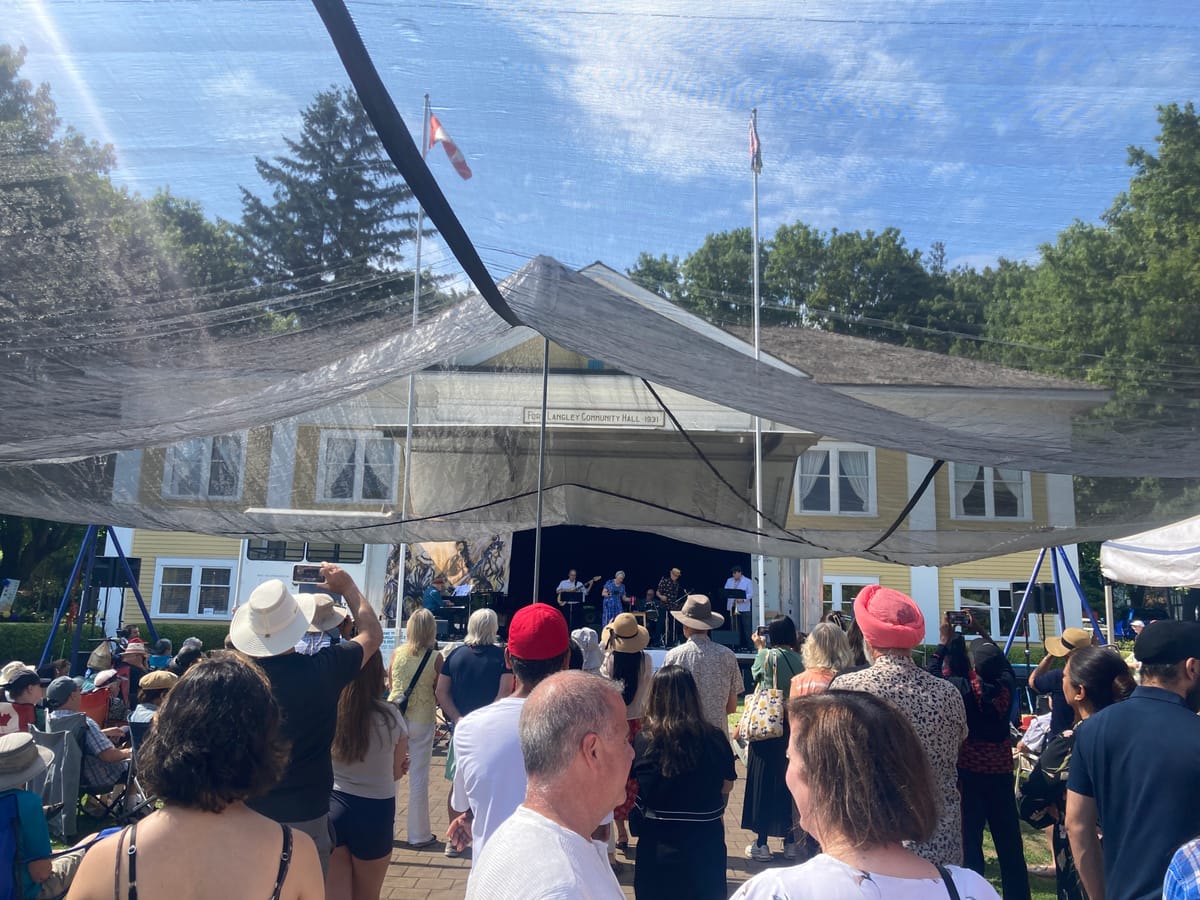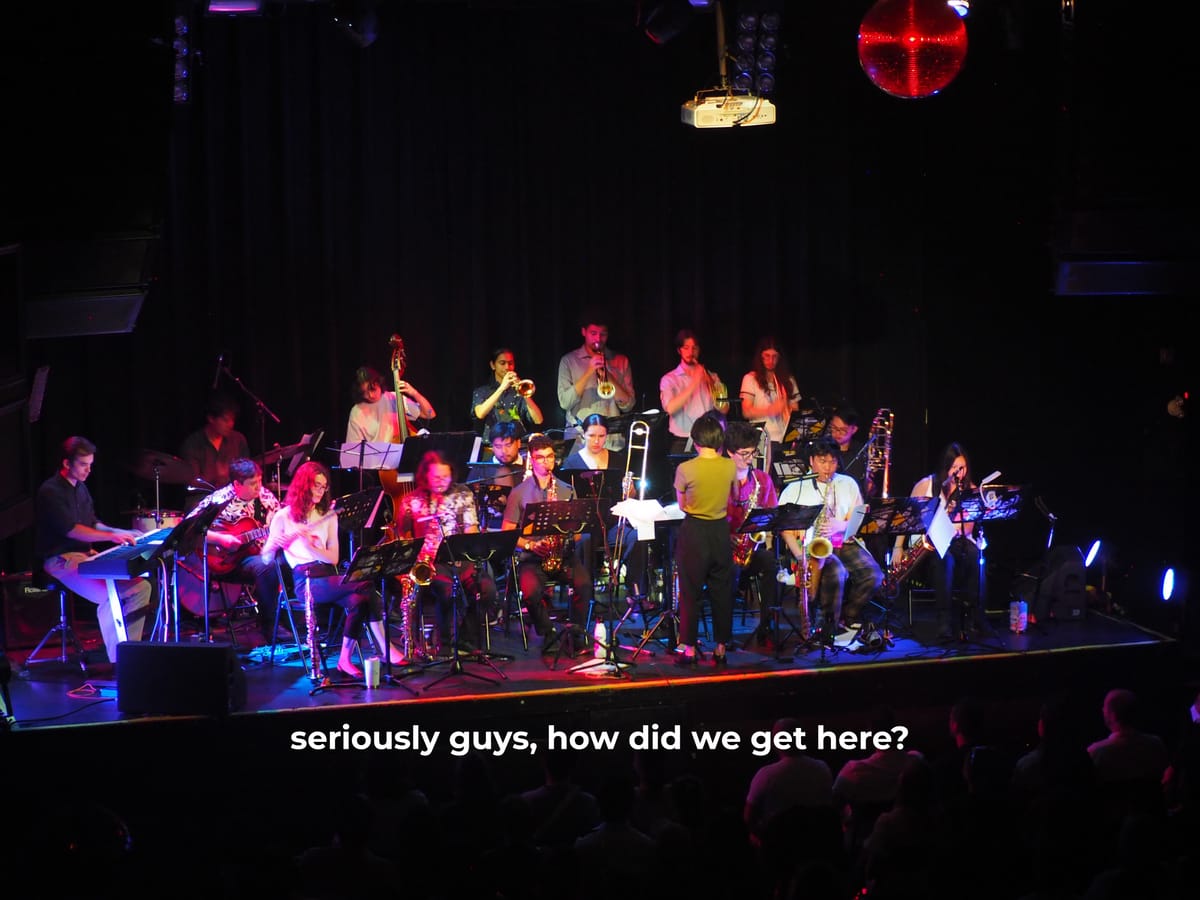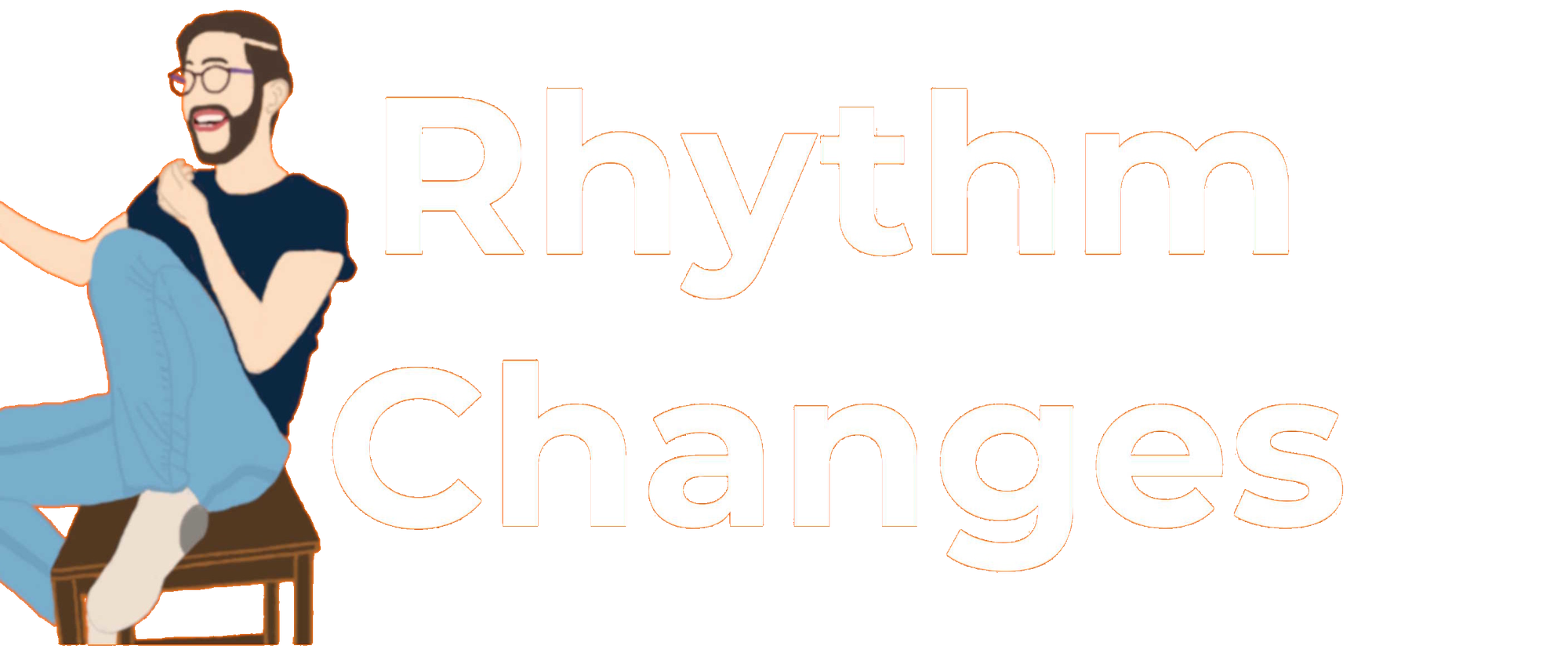About Rhythm Changes
Rhythm Changes is a website about creative music in Canada. Will Chernoff started it in Vancouver in 2020 with the mission to be "a home for creative, improvising, local music people" and to make it more fun and easier to participate in the scene.
"Stepping up to spread the word about great music" - Nou Dadoun, Vancouver Co-Op Radio
"Coverage of some of the best. [Will] comes to the music from the inside" - Laila Biali, CBC Music
"A great local service" - John Korsrud, Hard Rubber Orchestra

Rhythm Changes publishes music stories and conversations as well as a curated list of shows in Metro Vancouver, made possible by paying subscribers who support the project.
The 3 parts of this website
- The gig list, a monthly webpage that gathers over 200 local shows in one place. The list is used by thousands of people and is often referred to as the comprehensive source for what's happening in our community.
- The Free Weekly email, every Tuesday morning at 6:00 AM Pacific Time, which includes the week’s upcoming events from the gig list and features artists, events, or recordings for you to check out.
- Subscriber Fridays: written stories delivered weekly to the subscribers.
The Rhythm Changes Podcast is an audio companion to the website, hosted by guitarist Chris Fraser.
Some of my favourite stories so far
Here are a couple recent highlights that I'd recommend you check out first as examples of what goes on here:





Will Chernoff
About me
I was born and raised in New Westminster, BC and live in nearby Coquitlam.
I’m an active musician. Playing was my point of entry into the working world of music, and in my early twenties, it provided my main income. I still play occasionally.
Chernoff Music is my own business. Through it, I offer services to record labels, live music presenters, and non-profit arts organizations in the U.S. and Canada, including some companies here that you may know (more on that below). It’s also the record label for my music.
FAQ
Many people contribute to your community as volunteers. Why do you charge money for the subscription?
Why not? It takes time to produce, and it appeals to certain people. I'm fortunate to have happy customers. I could identify many more reasons than this, but it's that simple.
As for volunteers in my community, I respect what they do and wouldn't begrudge any of them if they charged (more) for their effort. And of course, the way they're doing it right now is okay too, if it works for them.
What about writing for another website / outlet?
It's not a priority of mine. Being published by another outlet doesn't add anything to what I provide you with here. If the line of questioning is, "Are you writing here because you're working towards a writing gig at a well-known music publication? Maybe they'll hire you someday?" The answer is no. It might still happen occasionally, I guess.
Why did you decide to have paying subscribers?
I think that a lot of music writers might have learned under the mass-market advertising model, which no longer works for music writing. I bet the concept of mass-market in entertainment only was real in the 20th century and won't exist any longer. With no mass-market, everyone serves a niche, from the traditional music publications down to us.
And just because some old players still exist, doesn't mean their business model works. Cost structures are a brutal reality. The only thing that works for a media niche as small as ours is subscription. There’s no moment in the future when Rhythm Changes breaks through to a mass-market and advertising supports everything.
Okay, why should I become a paying subscriber anyway?
That's up to you. I enjoy hearing from you after you subscribe, when you share why you joined. Everyone has a different reason.
But maybe I can tell you some reasons why you shouldn't!
First, let's talk pricing. Anyone with a super-tight budget of what to spend on entertainment would be best off subscribing to other things. It's quite something that a music streaming app or any TV and movie streaming service can cost not-much-more than Rhythm Changes, and I could never compete with their volume of entertainment; so if you need the largest amount of stuff in return for your spend, please go ahead.
Second, how about supporting some artists first? I bet you've got some favourite artists in your life – that's probably why we're all here. Certainly you should buy some of their music and/or merch before you consider subscribing to me.
And third, maybe you don't trust me to produce consistently. I send to subscribers every Friday: what if I fail to deliver? What if nothing interests you? I don't blame you if you just don't know me well.
Those are the biggest reasons I can think of why you shouldn't subscribe. Not swayed? Come on down!
Don't we all get too much email already?
No, I don't think so: we get too much bad email, unexpected email, disrespectful of the five 'W's email. When you subscribe, you know who it's from (me), what you're getting, when and where you're getting it, and why you chose to get it.
People actually don't have enough email like that. When we give them more of it, they'll be even happier to refuse the bad email.
Who are your paying subscribers?
Fans, Juno winners, touring performers, musicians in our scene with day jobs, presenters of local talent... and more fans! Although many of my paying subscribers are artists – because they find that my work can add value to their careers – others are non-musicians, and all are welcome. We have more non-artist subscribers than I had expected.
What is the cancellation policy / refund policy?
Cancellation policy: your subscription renews automatically until you cancel. After cancelling, you won't be charged again.
Refund policy: After you have been charged for a period (month or year), you cannot receive a refund for that period. However, you can cancel any time before the next charge.
Ethics
Before Rhythm Changes, I worked in a variety of roles throughout the first 10 years of my music career, including making my own music. Integrity is important to me. Here's a breakdown of how I operate:
- No payment for coverage. I never charge artists to be covered and no-one can pay for influence over whom I cover, or what I say about anyone or anything.
- No editorial control for the subject. Though I sometimes explicitly clear speaking terms with people, making sure I know what's on-the-record and what isn't, I don't allow anyone I cover to review, approve, or otherwise have "final cut" privileges on my content before publication.
- No editorial control for sponsors/subscribers, no sponsorship of own music content. While I sometimes have local sponsors who benefit from the music I cover, I never sell sponsorships on content that features their music. And of course, the sponsors have no input on the coverage of their music. The same goes for paying subscribers: several presenters in the scene are subscribers, but they get no editorial control over anything I write.
- I don't tie complimentary tickets to coverage or set up any exchanges of value around going to shows. My ideal policy for comps is, "Never ask, always accept." I usually buy my own admissions like anyone else but am grateful for invitations and comps extended to me, of course.
- Your pre-release music is safe with me; I often need those links and files, but I'll never share them to the public.
- No editorial control for people I gig with. Rhythm Changes is an independent project, no matter whom I work with. I have covered many previous colleagues, and I might work with a musician who has been covered. That's how the cookie crumbles when you live so much of your life in a small local music scene.
Recordings and music sales
I don't aim to benefit from sales of the music I cover, but sometimes, I might write about my own releases, songs, and events. I add a disclosure when it makes sense to do so. Also, I might promote my own upcoming projects in little bits throughout my content.
No links from Rhythm Changes to recordings, event tickets, or sponsors' products are affiliate links, which means I never earn any commission money when you go to gigs or buy music that you find here. All sponsors simply pay me a flat fee when they book their sponsorship.
Chernoff Music clients and partnerships
My clients at Chernoff Music may not solicit any coverage at Rhythm Changes, unless we have an in-kind sponsorship agreement for me to do editorially independent content. As always, I will not receive payment in exchange for any coverage, and no one will have editorial control or input over what I publish except for me.
My largest client is Cory Weeds and the Cellar Music Group (since Nov. 2023), under which I work on properties in the scene like the label Cellar Music, the festival Jazz at the Bolt, and the Vancouver Jazz Orchestra Society. However, I have no direct business with Frankie's Jazz Club, unless I'm playing there.
The following are my other active clients and sponsorship partners who are present in the scene:
- Bez Arts Hub, a venue in Langley (since Jun. 2025)
- Coastal Jazz & Blues Society (since Dec. 2025)
- Inlet Music Series, Port Moody (since Aug. 2025; Rhythm Changes also provides an in-kind sponsorship for the series' 2025/26 season as the media partner)
My recent former clients in the scene include:
- Infidels Jazz (Oct. 2024 - Dec. 2025)




